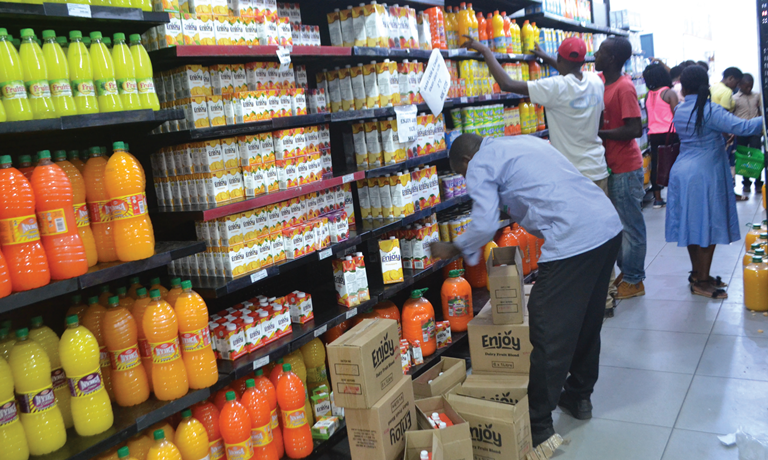Commodity prices increase amid fuel adjustments
Prices of commodities continue to rise in the country, a situation worsened by the recent adjustment of fuel prices Malawi Energy Regulatory Authority (Mera) effected on April 10 2022.
Prices of basic commodities like sugar, salt, bread, flour and vegetables, among others, have risen with an average of K150 to K300 a week after an average 22 percent fuel pump price hike.

This in turn has led a majority of Malawians, who are grappling with a high cost of living, to struggle in accessing most basic commodities.
The Consumers Association of Malawi (Cama) has since indicated that it will start engaging traders and suppliers to negotiate for better market prices and find a win-win situation.
In an interview last week, Cama executive director John Kapito pointed out that the depreciation of the kwacha, fuel price adjustments and the Russia and Ukraine conflict, have led to price increases.
Kapito said in that regard, it is sad that Malawians are being heavily affected and continue failing to access the most basic commodities.
He said: “We are planning to engage most of the suppliers and bargain for better market prices. We are aware that even traders and suppliers are also affected but we need to find some common ground for the good of both of us.”
Kapito said Cama is optimistic and confident that despite such challenges, the country will get out of such a huge economic burden.
Centre for Social Concern (CfSC) figures also show that the cost of living in Malawi’s four cities, Lilongwe, Zomba, Blantyre and Mzuzu, have shot by an average 5.45 percent to K255 593 last month.

Of this, the food basket, which includes maize, milling and cooking oil, among other items, rose to an average K147 134 while non-food basket, which comprises housing, electricity and water, rose to an average of K107 985 for a household of six members.
In random interviews at the weekend, people that spoke to The Nation spoke to expressed discomfort at the rise in prices of the commodities, saying they are struggling.
In an interview, a Blantyre-based resident, John Kalamula, said: “While we appreciate that this is a global problem, we still think traders can be reasonable in adjusting the prices.
“For example, we are buying bread at K1 000 from K750 last week while some shops are selling the same at K1 200 or beyond.”
In a separate interview, a Zomba-based resident Thelma Nankwawa, said it is imperative for the government to put in place incentives that can cushion consumers.
She said: “Government needs to ensure that its people are cushioned. There are high taxes we are currently paying and with the high prices of commodities, life will be extremely hard.”
Last week, a group of concerned citizens also took to the streets of Blantyre to demonstrate against the high cost of living, which has been worsened by effects of the Ukraine and Russia war.
When contacted last week, Minister of Information and Digitisation Gospel Kazako, who is also the official government spokesperson, said the government understands and sympathises with the citizen’s suffering.
“We sympathise with the people. We understand their painful situation. We wished global economic trends changed with speed to enable us to achieve what we had set.
“Remember, this is a global problem. The global economy has slowed down. All countries, including the United States, the United Kingdom and all big economies are feeling this heat,” he said.
Food prices have been on the rise in the country following the depreciation of the kwacha.
However, the prices started to escalate further following the Russia and Ukraine war, which has also affected other major economies that have economic links with the two countries.






2 Comments